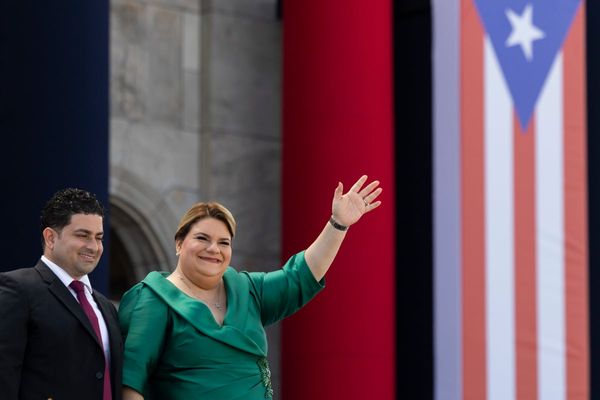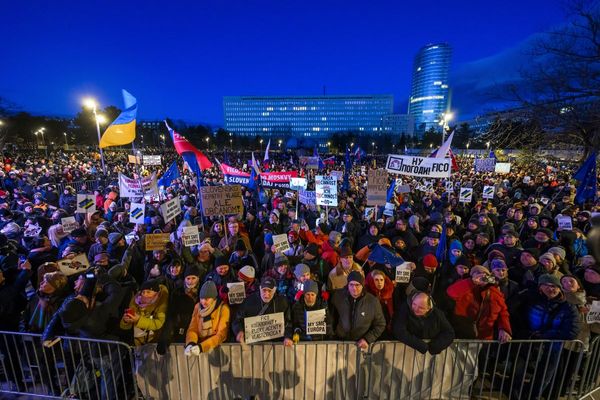
As a U.S. presidential candidate, Joe Biden declared that he would “lead efforts internationally to bring transparency to the global financial system, go after illicit tax havens, seize stolen assets, and make it more difficult for leaders who steal from their people to hide behind anonymous front companies.” Perhaps nowhere will his intervention be more welcome than in Africa.
According to the United Nations Conference on Trade and Development, illicit financial flows out of Africa amounted to $836 billion from 2000 to 2015, while the continent’s external debt for 2018 was $770 billion. Each year, Africa loses an estimated $88.6 billion through illicit financial flows—almost double its annual official development assistance, valued at $48 billion, and nearly half of its annual financing gap, worth $200 billion, for achieving the Sustainable Development Goals.
Stemming illicit financial flows and returning stolen assets are therefore a top priority in countries across the continent eager to finance domestic development. It would be extremely beneficial for Africa if Biden were to make the fight against illicit financial flows a core component of U.S. Africa policy. After all, the United States is partly to blame for Africa’s financial hemorrhage problem.
That’s because Washington, as the largest shareholder of the Bretton Woods institutions, imposed capital account liberalization on African countries as part of structural adjustment programs of the 1980s and 1990s, even while African countries did not have adequate protections in place to safeguard against illicit financial flows, which skyrocketed along with the influx of multinational companies.
The 2015 Report of the High Level Panel on Illicit Financial Flows from Africa (also known as the Mbeki report after former South African President Thabo Mbeki, who chaired the panel) found that 65 percent of illicit financial flows from the continent originated from commercial activities of multinational companies through transfer mispricing, trade misinvoicing, misinvoicing of services and intangibles, tax treaty shopping, and unequal contracts; the remaining 35 percent is linked to criminals and funds stolen by government officials.
A Brookings Institution report also revealed that from 1980 to 2018, the United States was second only to China among the top destinations for illicit financial flows out of sub-Saharan Africa. The United States hosted $129 billion, representing 9.1 percent of illicit financial flows from the region over this period.
The United States continues to be a prime destination for illicit financial flows out of Africa, thanks to its status as what is known as a “secrecy jurisdiction” facilitating private offshore tax evasion. For the second consecutive time, in 2020, the United States ranked second on Tax Justice Network’s Financial Secrecy Index, surpassing Switzerland. Meanwhile, the U.S. Foreign Account Tax Compliance Act (FATCA) has made stashing money offshore difficult for U.S. citizens.
While FATCA requires foreign financial institutions and signatory governments to disclose information about U.S. citizens’ assets in their jurisdictions to U.S. authorities, the U.S. government reneges on its reciprocal obligation to provide the 113 participating governments with information about their citizens’ assets that are held in the United States. The United States has also resisted joining over 100 countries that have so far signed onto the Organization for Economic Co-operation and Development’s Common Reporting Standard—a platform, inspired by and modeled on FATCA, for the automatic exchange of information on foreigners’ financial accounts with their home country governments.
The United States’ reluctance to disclose information about foreigners’ assets has made it a preferred offshore tax haven, effectively attracting funds from more transparent tax havens. The U.S. financial system also provides a lifeline to criminals from Africa who exploit it to sustain illicit activities such as money laundering; drug, arms, and human trafficking; smuggling contraband; and financing terrorism. Funds from such criminal activities constitute 30 percent of illicit financial flows from Africa, according to the Mbeki report, while the remaining 5 percent, part of which also infiltrates the U.S. financial system, originates from bribery and theft of public funds by African government officials.
Although the United States recently passed beneficial ownership legislation as a component of the National Defense Authorization Act, the new law is not ambitious enough to improve the U.S. ranking on Tax Justice Network’s Financial Secrecy Index.
The numerous exceptions to reporting beneficial ownership and the limited categories of companies required to report mean that criminals and tax evaders can still own entities in the United States without disclosing their identities. In addition, the U.S. government does not provide open access to beneficial ownership information, unlike the United Kingdom, which provides public access to this information, and the European Union, which also requires member countries to provide public access to beneficial ownership information.
The United States would benefit from supporting Africa’s fight against illicit financial flows. The U.S. government will commit fewer financial resources and security personnel to tackling insecurity in Africa when the financiers of conflicts and terrorism on the continent are starved of access to illicit funds.
The U.S. government will also spend less on foreign aid to a more economically independent Africa and will see reduced illegal immigration from the continent. And while U.S. programs such as the Young African Leaders Initiative provide significant training and opportunities to a select few (and arguably advantaged) African youth, a host of young Africans will achieve their potential and drive the continent’s growth if the money that is currently siphoned away from the continent is channeled toward increasing access to quality education and job opportunities.
Supporting Africa’s fight against illicit financial flows is also a moral question, particularly as Biden has committed to tackling systemic racism against African Americans. Defending the economic rights of Africans (through support for Africa’s fight against illicit financial flows) must go hand in hand with efforts to address discrimination against African Americans. As long as Africa remains underdeveloped, people of African origin everywhere around the world will face discrimination.
Stopping illicit financial flows will also provide the United States with an opportunity to claim the moral high ground against China, which America accuses of exploiting Africa. The Brookings report valued illicit financial flows from sub-Saharan Africa to China from 1980 to 2018 at $226 billion (almost double the illicit flows to the United States over the same period), with 85 percent of those illicit flows occurring between 2010 and 2018 as China’s trade with Africa rapidly increased.
The United States must lead by the power of its example on the matter of illicit financial flows. U.S. Treasury Secretary Janet Yellen’s recently announced proposal for a global minimum corporate tax rate of 21 percent (coming on the heels of the Biden plan to increase the United States’ domestic corporate tax rate to 28 percent) mainly favors wealthy countries by reducing the incentive for their multinationals to divert revenues from their countries to corporate tax havens.
Multinationals that pay corporate tax rates below 21 percent to foreign jurisdictions would still have to pay the difference to their home governments. Under this proposal, African countries would continue to lose revenue through profit shifting, because their statutory corporate tax rates are much higher. Africa’s average statutory corporate tax rate for 2021 is 27.5 percent, according to KPMG. Tax rates for such sectors as mining and oil and gas can be as high as 35 or 40 percent. The U.S. government should protect the interests of African countries and other developing nations by including a unitary taxation element in the proposal for a minimum corporate tax, to ensure that developing countries receive taxes proportional to the volume of sales and employment by multinationals in their countries.
The United States must also show commitment to increasing transparency in the international financial system by providing public access to its beneficial ownership information and joining the Common Reporting Standard. The U.S. government can further support Africa by readily supplying details of Africans’ assets in the United States to their governments through FATCA and national financial intelligence units. Improved access to this information will expedite African governments’ efforts to return stolen assets to the continent.
Finally, the United States could partner with African countries through technical and financial support for their international tax departments, the majority of which are understaffed and under-resourced, and thereby face challenges auditing multinationals and fulfilling reporting obligations to platforms like the Common Reporting Standard. Organizations and government agencies should also support more good governance programs, journalists, and whistleblowers in Africa to check corruption on the continent and expose financial crimes.
The accountants and lawyers at U.S. firms, such as the Big Four accounting firms and consulting giants, have been accused of being largely complicit in the illicit transfer of money from Africa and reportedly aid African kleptocrats and money launderers in stashing money abroad.
U.S. authorities must clamp down on these companies by passing and enforcing strict regulations to prevent them from processing suspicious transactions from suspected criminals and politically exposed persons. The U.S. Financial Crimes Enforcement Network must also stop U.S. banks from processing suspicious transactions when the banks file suspicious activity reports. To deter these powerful U.S. banks from continuing to serve suspicious clients even after receiving huge fines and deferred prosecution agreements, the U.S. government should fully prosecute executives for breaching such regulations.
Global financial transparency will increase substantially with U.S. might and political will. Biden should begin by imposing comprehensive tax policies that favor all countries over those that narrowly serve U.S. interests. Doing so will enhance the United States’ status as a global democratic leader.







